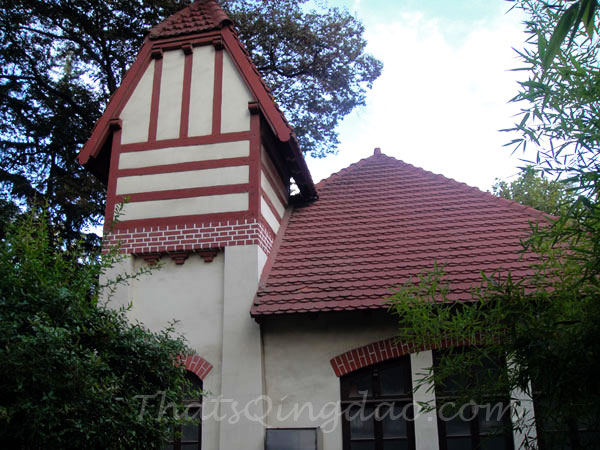
Qingdao’s Old Town is full of historical attractions and buildings and left over from the German concession that began in 1897. One such historical landmark is the old German Military Hospital located inside the Qingdao University Medical College Hospital at 16 JiangSu Road.
The old German Military Hospital 总督府野战医院旧址(即督署医院) began construction in 1898 and was completed in 1904 along with the Tsingtao Beer Factory. Prior to its construction Qingdao’s sick were treated in simple military tent huts.
The construction of Qingdao’s first hospital by the Germans along with strict hygienic standards enforced by the German medical staff resulted in Qingdao becoming the healthiest harbor town in China during the early 1900’s. While many southern ports were hit by the plague and cholera, Qingdao remained out-break free without any disruptions in trade.
Photograph © Colton Dirks
Mariechen Muser (Hannover, 15 June 1882 – Buenos Aires, 19 Oct 1977) arrived in Qingdao in August 1898 and worked there as a Red Cross nurse until early 1912 taking care of sick German soldiers, mostly cholera patients. She traveled through Suez channel back to Hamburg a few times a year supervising the health of soldier survivors. After visiting her parents and siblings at the nearby family farm, she returned to Qingdao quickly by train Berlin-Moscow-Vladivostok from where she arrived to Qingdao by ship. During the first 8 years, the Trans-Siberian railroad was still incomplete and several weeks by carriage were necessary to complete the trip. She was one of 4 (out of 8) surviving siblings from the diphtheria epidemics of 1886. Upon returning to Germany in early 1912 she found military personnel making an inventory of metal objects at her home and surroundings. She felt the eminence of war and wanted to take her young sister with her to New York. However, upon climbing to the ship they were told it was full, so they went to the next one on line using the same tickets. It turned out destination was Buenos Aires. Upon arrival they were denied entrance but right at the migration office they were promised jobs as nurses at the German Hospital in Rosario if they continued 300 km north on the Parana River. They arrived at Rosario on 30 May 1912. Mariechen and my grandfather, Augusto Bunge (Buenos Aires 25.4.1877- ibid. 10.8.1943), a physician at the German Hospital, met in 1918. They procreated my father Mario (born 1919) and little Eva who died young, all in Buenos Aires. At 99, Mario, the philosopher, keeps publishing one or more books every year. Mario has two children, Carlos (me, 1941) and Mario (1943) from his first marriage, and another two from his second marriage, Eric (Montreal, 1967) and Silvia (Montreal, 1974). He also has 10 grand children (born in Argentina, Brazil, Mexico and U.S.A.) and 9 great grand children (born in Argentina, Mexico and U.S.A.). Mariechen was the center of the family until her death at 95, still active and full of love towards family and friends.